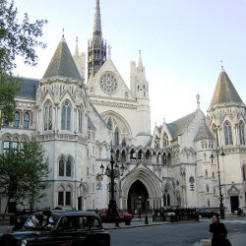The Gambling Commission has defended its decisions in dealing with the Health Lottery as “impeccable” in its response to a claim by the National Lottery operator for a judicial review of its actions.
The Gambling Commission yesterday got to respond to the case brought against it by Camelot over its decision not to have a wide-ranging review of the Health Lottery. Camelot is seeking a judicial review of the Gambling Commission’s actions.
James Goudie QC, acting for the Gambling Commission, confirmed that the Commission does have some ongoing concerns about the Health Lottery, but said it is addressing these in a review of the marketing and promotion of the scheme, and in ongoing dealings with the Health Lottery and the 51 societies which hire it as an external lottery manager.
Despite these concerns, the Gambling Commission does not consider the Health Lottery unlawful, he said. When it was proposed, the Commission judged that the Health Lottery scheme ran close to the borders of the law, but Goudie said the regulator was and is confident the scheme can operate in compliance with the law. As a result, he argued, the Commission was obliged to grant licences to the operator and community interest companies (CICs) and subsequently monitor how the scheme was rolled out.
“That’s an impeccable approach. The approach of the Commission has been impeccable throughout,” said Goudie.
“These were matters that could only be monitored over time.”
Referring to communications between the Commission and the Department for Culture, Media and Sport, revealed in court on Wednesday, Goudie said that the Commission had been acting within its responsibilities as regulator in informing the DCMS that it thought the scheme was legitimately utilising a “loophole” in legislation and that the DCMS or Secretary of State might want to introduce some certainty into the law.
Goudie said the fact that it had brought the loophole to the attention of the Department demonstrates that the Commission had always viewed the Health Lottery as operating legally. “There is only a loophole if one believes the scheme is lawful,” he said.
Goudie dismissed Camelot’s position, represented by Lord Pannick QC in the hearing on Wednesday, that the scheme is undermined by the fact that the 51 societies were set up with a view to creating to the Health Lottery. Goudie argued that the critical point is that those CICs were themselves not established for non-commercial purpose and that they benefit their local communities.
“The proof of the pudding is in the eating, because [the Health Lottery] has raised millions of pounds for good causes up and down the country,” said Goudie.
“It would be a tragedy if that would be terminated.”
Earlier this month the Health Lottery announced that it had raised £20m for good causes since launching in October 2011.
Goudie said that the Gambling Commission was surprised at how the Health Lottery was presented at its launch last year, and immediately “hauled” in the Health Lottery and the CICs involved. Since that point however, he said, “it is a story of constant and continuing progress”. In particular he said the Commission was pleased with moves by the CICs to develop a stronger presence in their regions.
“The Commission remains more concerned at this point about the way the scheme is being marketed,” he said. “There has been good progress, but not enough.”
The Gambling Commission last month announced a review into the marketing and promotion of the Health Lottery, but Goudie said it has not ceased monitoring the operation as a whole nor discounted the idea of holding another review into the licences in the future.
Goudie added, however, that there was no specific time frame in which the Commission was obliged to conduct a licence review should it feel one is necessary, and added that it was right for the Commission to consider things such as its own capacity, the difficulty of the case and likelihood of success in deciding whether to take regulatory action against an operator.
Starting on Wednesday this has been a rolled-up hearing which means that should the judges decide that a judicial review is warranted, that review will take place immediately.
The Health Lottery and the 51 CICs are represented at the hearing as interested parties and are yet to have their own arguments heard by the court. The hearing continues.










